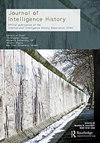The Afghanistan File
引用次数: 0
Abstract
The Afghanistan File is a first-hand account of Saudi Arabia’s involvement with the Mujahideen during and after the Afghan-Soviet War by Prince Turki AlFaisal AlSaud and Michael Field. The son of King Faisal of Saudi Arabia (1906–1975), Prince Turki served as head of Saudi Arabia’s General Intelligence Directorate (GID) for 24 years from 1977 to 2001 and later served as Saudi ambassador to the United Kingdom and United States. Prince Turki explains that during his time as GID head, ‘almost’ the entire time he was ‘above all’ focused on Afghanistan (p. xvii). He credits King Abdullah of Saudi Arabia (1924–2015), then a crown prince, with the idea for writing the memoir, quoting him as commenting that people in other countries gave their perspectives but there was no Saudi book to rebut false claims about Saudi Arabia. Beyond Prince Turki’s memories, the books also draw on other figures who were interviewed for the book, including former Afghan and Saudi intelligence officers. Prince Turki sees his intelligence work on Afghanistan consisting of three phases. The first is Saudi Arabia, through the GID, aiding the Mujahideen resistance against the Soviet Union from 1979 to 1992. Most of the book is centred around this subject with Prince Turki detailing his travels, interactions, and specific meetings with Afghani, American, Pakistani and Saudi leaders as well as others, such as his ‘former press adviser’ Jamal Khashoggi (1958–2018) (who is also thanked in the acknowledgements). The book begins with Prince Turki describing the day the Soviet Union invaded Afghanistan and the conversations he held with other governments. Notably, Pakistan was particularly concerned about the Soviet Union also occupying parts of Pakistan and the impact of an India-friendly government in Kabul. He details, for example, meeting the Director-General of Inter-Services Intelligence (ISI), Akhtar Abdur Rahman Khan (1924–1988), in Riyadh during 1980 and days later Saudi Arabia sending $2 million in cash to the Pakistani government to be spent ‘as it wished’ (p. 6). Subsequently, American officials, at the insistence of Pakistani President General Zia-ul-Haq (1924–1988), worked with Prince Turki and other Saudi officials to match funds for the resistance and purchase weapons. Prince Turki also describes aspects of Saudi bureaucratic culture, writing: ‘It tends to be the Kingdom’s policy to have just one department and one small team of people around the head of that department handling any particular issue’ (p. 12). He further notes that he authorized ‘every payment’ made by the GID and how the selection of a spokesperson for the Mujahideen came from his orders of putting the leaders in a conference room and forcing them to speak with a single voice. The total sum tallied for Saudi government expenditures to the Mujahideen was $2.71 billion, not including private donations.阿富汗档案
《阿富汗档案》是由图尔基·阿尔费萨尔·阿尔沙特王子和迈克尔·菲尔德撰写的关于沙特阿拉伯在阿富汗-苏联战争期间和之后参与圣战者的第一手资料。图尔基王子是沙特阿拉伯费萨尔国王(1906-1975)的儿子,从1977年到2001年,图尔基王子担任沙特阿拉伯情报总局(GID)局长长达24年,后来担任沙特驻英国和美国大使。图尔基王子解释说,在他担任GID负责人期间,“几乎”整个时间他都“首先”关注阿富汗(第17页)。他将撰写回忆录的想法归功于沙特阿拉伯国王阿卜杜拉(1924-2015),当时是王储,引用他的评论,其他国家的人们给出了他们的观点,但没有沙特书反驳关于沙特阿拉伯的虚假说法。除了图尔基王子的回忆,这些书还引用了为这本书采访的其他人物,包括前阿富汗和沙特情报官员。图尔基王子认为他在阿富汗的情报工作分为三个阶段。第一个是沙特阿拉伯,通过GID,在1979年到1992年期间帮助圣战者抵抗苏联。这本书的大部分内容都围绕着这个主题,图尔基王子详细介绍了他的旅行、互动以及与阿富汗、美国、巴基斯坦和沙特领导人以及其他国家领导人的具体会面,比如他的“前新闻顾问”贾马尔·卡舒吉(Jamal Khashoggi, 1958-2018)(在致谢中也对他表示了感谢)。书的开头,图尔基王子描述了苏联入侵阿富汗的那一天,以及他与其他政府的对话。值得注意的是,巴基斯坦特别关注苏联也占领巴基斯坦部分地区以及喀布尔一个对印度友好的政府的影响。例如,他详细描述了1980年在利雅得会见三军情报局局长阿赫塔尔·阿卜杜勒·拉赫曼·汗(Akhtar Abdur Rahman Khan, 1924-1988),几天后沙特阿拉伯向巴基斯坦政府提供了200万美元现金,让其“随心所愿”(第6页)。随后,在巴基斯坦总统齐亚·哈克将军(Zia-ul-Haq, 1924-1988)的坚持下,美国官员与图尔基王子和其他沙特官员合作,为抵抗组织筹集资金并购买武器。图尔基王子还描述了沙特官僚文化的各个方面,他写道:“王国的政策往往是只有一个部门,在该部门负责人周围有一个小团队处理任何特定问题”(第12页)。他进一步指出,GID的“每一笔付款”都是他授权的,而圣战者的发言人是如何从他的命令中挑选出来的,即把领导人放在会议室里,强迫他们用一个声音说话。沙特政府对圣战者的支出总额为27.1亿美元,这还不包括私人捐款。
本文章由计算机程序翻译,如有差异,请以英文原文为准。
求助全文
约1分钟内获得全文
求助全文
来源期刊

Journal of Intelligence History
Arts and Humanities-History
CiteScore
0.50
自引率
0.00%
发文量
21
期刊介绍:
The Journal of Intelligence History is the official publication of the International Intelligence History Association (IIHA). It is an international peer-reviewed journal that aims to provide a forum for original research on the history of intelligence services, activities and their wider historical, political and social contexts. The journal aims to publish scholarship on all aspects of the history of intelligence, across all continents, countries and periods of history. We encourage submissions across a wide range of topics, methodologies and approaches.
 求助内容:
求助内容: 应助结果提醒方式:
应助结果提醒方式:


